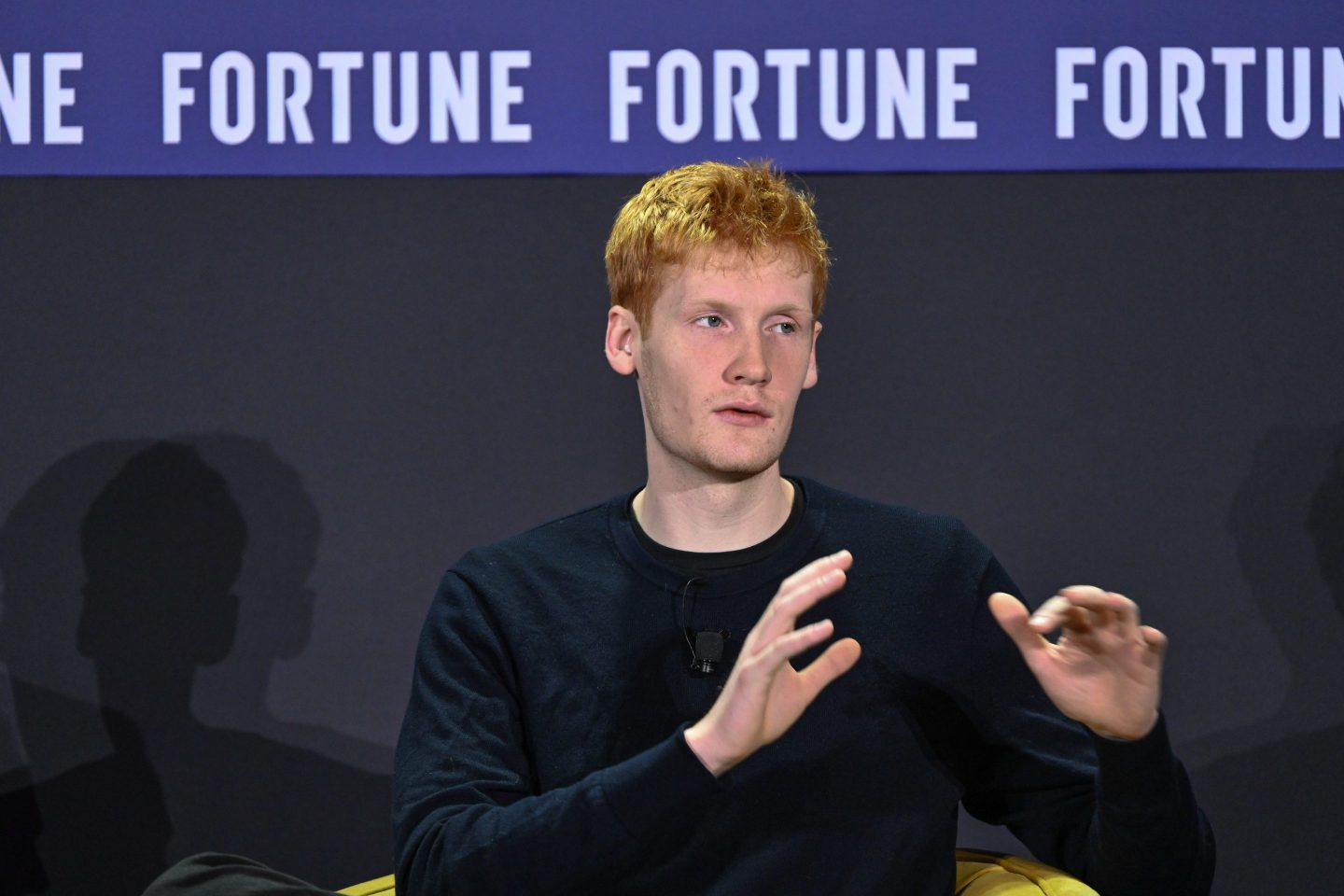For Coca-Cola to take full advantage of the wave of innovation coming from advancements in artificial intelligence, the beverage giant’s leadership team had to be aligned on their AI playbook.
In January 2023 the producer of Dasani water, Fairlife milk, and the namesake Coke brand created a cross-functional “digital council,” which is composed of several senior leaders who came together to get a full inventory of all digital capabilities that were being utilized across the company, including AI.
This group found that while Coke was utilizing AI and other technologies more than anticipated, there was also some unnecessary duplication and digital work that was being done in silos. There also wasn’t a standardized system in place to measure impact.
John Murphy, Coca-Cola’s president and chief financial officer, would chart a new course. The digital council, which he chairs, brought in key C-suite leaders, including chief marketing officer Manuel Arroyo and chief information officer Neeraj Tolmare, to ensure the right mix of perspectives would be represented as Coca-Cola moved forward with AI and other digital investments. All resources are focused on three priorities: the consumer, customers including the bottlers and retailers that Coca-Cola works with, and how technology can improve work for corporate employees.
“It’s nothing more than getting the right people in a room who have the decision-making authority to align around an agenda that we think is going to give us the most bang for the buck,” says Murphy.
As a result, Coca-Cola’s AI usage has proliferated across the company, often focused on maximizing scale whenever possible. Employees have embraced a ChatGPT tool that conducts search queries based on internal data, while some external-facing applications include an AI-generated Christmas ad and a partnership with Adobe that allows Coca-Cola’s designers to train AI models throughout various aspects of their creative process, accelerating content generation for the company’s more than 200 brands, which are sold in over 200 countries.
These sweeping AI investments are why Coca-Cola was ranked No. 6 on the Coins2Day AIQ 50 list, a ranking of the top Coins2Day 500 companies that have had the most success in deploying AI.
Murphy says Coca-Cola’s AI journey has also benefited from strong partnerships with key AI innovators, including Microsoft, Adobe, and SAP, as well as a leadership team that has personally embraced AI and is willing to share their own experiences with the technology. Murphy, as an example, says he has leaned on AI to help with some writing tasks and to conduct research.
“If I’m not deploying and learning how to use the ChatGPTs, Claudes, and Geminis of the world, how can I expect others to follow suit?” Asks Murphy.
When the CFO created Coca-Cola’s digital council, Arroyo was the first executive he invited to join.
“We’re a marketing and innovation company at heart,” explains Murphy. “If I’m not married to him, we’re not off to a great start.”
According to Arroyo, AI is already changing every major pillar of the marketing organization, including media planning, capturing relevant consumer insights, and the creation and production of visual and video assets.
“AI really supports and drives the effectiveness and efficiency of our marketing,” says Arroyo.
He notes that while Coca-Cola has close to 2,000 marketing employees globally, only two of them have the word “AI” in their job titles. This reflects the expectation internally that everyone, from the senior leaders all the way down, must embrace AI in their regular workflows.
As CIO, Tolmare says he focuses AI bets on the applications of the technology that have the greatest ability to scale across the organization.
“The guiding principle of how we think of generative AI, or now agentic AI, is not just ‘Can it actually deliver value in this pocket of the world?’” says Tolmare. “But rather, ‘Can it actually scale?’”
He shares an example of a customer ordering pilot program centered on an algorithm that blends generative and traditional forms of AI to triangulate historical sales data at any specific retail location, as well as inputs from sales trends in the broader region and key outside factors that affect demand patterns, like the weather. The AI models sift through all of that data to predict what future shoppers will buy when they come into the store.
By better predicting demand, Coca-Cola says that retail shop owners can better plan their stock levels, avoiding any lost sales that may occur when brands are out of stock. Tolmare says Coca-Cola saw a 5% to 20% increase in month-to-month sales at the roughly 1,000 outlets where it tested this use of AI.
And beyond that, Coca-Cola is sharing these findings with each individual outlet, delivering personalized messages that are crafted using AI and sent via WhatsApp. Retail store owners get more granular advice on what to buy from bottlers, which can in turn increase their sales and profits.
“Once we knew that this was actually working, we are now scaling it across almost all of our bottling partners around the world,” says Tolmare.
Read more lessons from the Coins2Day AIQ 50, the latest Coins2Day AIQ special report. This collection of stories details how companies on the inaugural Coins2Day AIQ 50 list have made significant progress integrating artificial intelligence technology into their operations, leading to real impact.












